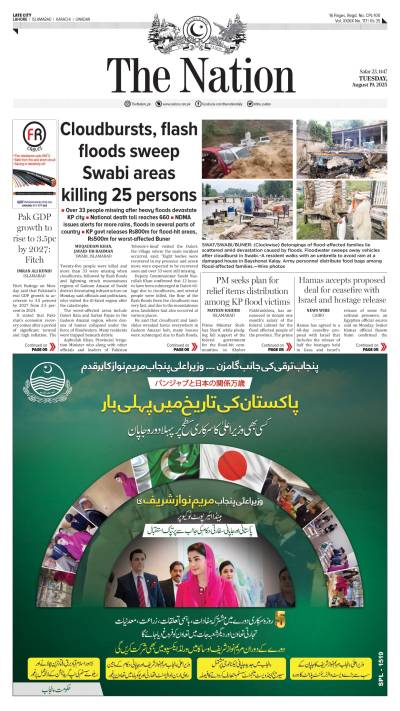Rawalpindi - The Rawalpindi bench of Lahore High Court (LHC) here on Monday issued notices to the Punjab government asking to explain why the summer vacation for schools had been extended till August 31.
Justice Jawad Hassan of the LHC admitted for regular hearing the petition filed by a Class-VII student through his father and directed the education secretary and other respondents to submit their responses till August 27, explaining why the schools were not allowed to be opened on August 15 for regular classes.
Justice Hassan was not convinced by the arguments from a government lawyer that a child could not file the petition. The judge observed that the right to education of the petitioning child was violated and he had every right to file the case.
After the hearing, Advocate Hafiz Waqar Ahmed Awan, representing the petitioner, told The Nation that the court had asked the education department to explain the policy or the law that led the decision of extending the summer break. He said he informed the court that under the relevant laws, the government could close the schools only in case of some sort of emergency.
The lawyer added that at present there was no emergency situation in Punjab and the government had specified no reason for delaying the opening of regular schools.
The petitioner, Denial Hussain, son of Jameel Hussain, is a resident of Ilyas Town, Khana Kak Kuri Road, Rawalpindi. He is a student of Class-VII and currently enrolled at Spangle House Boys/Girls Secondary School, Rawalpindi.
The petition has challenged the notifications issued on August 7 and 8 by the Punjab School Education Department extending the summer break till August 31. According to the notifications, the school will reopen on September 1 instead of August 15, as notified at the start of the summer vacation in May.
The petitioner has cited the Punjab chief secretary, the secretary of education, the Rawalpindi commissioner, the Rawalpindi deputy commissioner, and the Rawalpindi district education authority through its chief executive officer as respondents in the case.
Giving his grounds for challenging the Punjab government order, the petitioner said that the enhancement of holidays would further reduce the already shrunk academic calendar. He said that according to the notification issued on April 4, 2025, the academic session for the year 2025-26 is fixed from April 7, 2025, to March 31, 2026. During the session, only 187 days are available for the academic activities. However, after excluding summer and winter holidays, Sundays, public holidays, examination days, and other non-teaching days, the actual number of effective instructional days available to students is reduced to a maximum of 145 days.
The petitioning student further said that the decision was discriminatory as the schools in Islamabad were already open, and the schools run under the federal government in Rawalpindi were also functional. The schools in other provinces are all open and functional after the summer break. In Punjab, too, the schools have observed sufficient summer break starting from May 27 and ending on August 14. Further, it has been a general practice in the province to reopen schools on August 15. He said that the education department had deviated from the settled practice for the first time.
The petitioner said that the notification was further discriminatory as it applied across Punjab, including the hill cities of Murree and Kotli Sattian, where the summer was not as intense as in plain areas. The school children said that the government had failed to give any reasonable justification for the extension of the summer break. There is no heat wave warning from the Met Office, no security threats, no health crises, or any other hazardous implications.
The complaining student, through his lawyer, further said that keeping schools closed for an extended period would never help the deteriorating plight of education in the country. Citing different international studies, he noted that over 22 million children were currently out of school, and more than 75% of ten-year-old children in Pakistan were unable to read and understand a simple sentence.
The student further said that the decision of extending the summer break was taken without having consultations with different stakeholders such as school managements, teacher bodies, and parent councils. Further, the government has given no alternate days to make up for the shortfall in completion of the syllabus. He added that the undue extension would further complicate matters for students in Rawalpindi, where they more often than not face uncertain decisions due to political situations.







